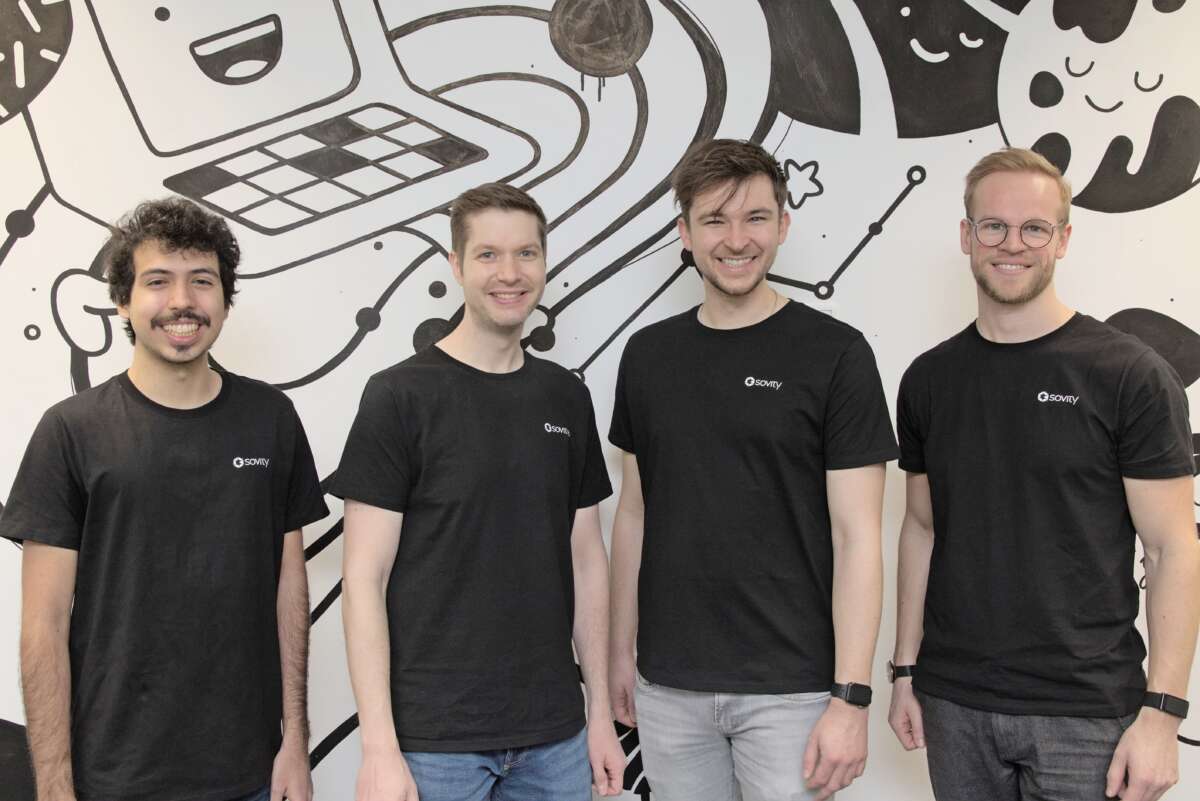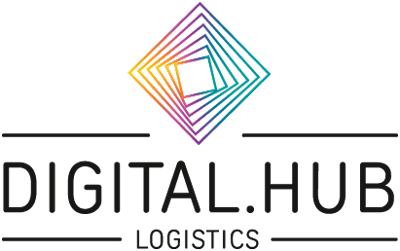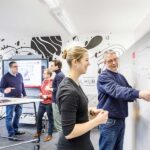
THE “IDS INSIDERS”:
Hub member sovity takes secure dataspaces on the road
Most startups can only dream of such support: barely founded, sovity is already backed by a strong network of experts and partners from industry and research. Automobile manufacturers such as Volkswagen and BMW, ICT service providers such as T-Systems, and organizations such as the International Data Spaces Association (IDSA) or Gaia-X are behind the idea of the young Dortmund-based company and endorse it. “Yes, it feels a bit like founding in the comfort zone,” says Sebastian Kleff, co-founder of sovity, the youngest member of the Digital Hub Logistics. “But the task that awaits us remains an immense challenge.”
Because the sovity founding team with CEO Sebastian Kleff and CTO Dr.-Ing. Sebastian Opriel have set their sights on nothing less than making sovereign data exchange accessible to every company. To do this, they use International Data Spaces (IDS) technology, i.e. they provide relevant software and thus enable data-driven business models – in other words: bring sovereign data exchange to the streets. The International Data Spaces were developed by several Fraunhofer institutes and more than a hundred international companies and associations on an open source basis and with the aim of establishing themselves as the de-facto standard for decentralized, interoperable and sovereign data exchange. Currently, for example, the work is flowing as an important basis into the European data infrastructure Gaia-X. “A number of very good and important components are now available for sovereign data exchange, but the technology itself and the interaction between the components are simply very complex,” says Sebastian Opriel. “For companies to be able to use them, they have to be real experts in the technology and also very close to the (continuous) development.”
Expertise from the inside view
When it comes to sovereign data exchange, the sovity founders are absolute insiders: industrial engineer Sebastian Kleff helped build the IDSA, wrote his master’s thesis on business models and the International Data Spaces. Sebastian Opriel, who is still a senior scientist at the Fraunhofer Institute for Software and Systems Engineering ISST, also worked on secure data spaces in his doctoral thesis. Both were driven early on by the idea of standing up for data sovereignty – also as entrepreneurs. The contact between the two tech experts was ultimately established by Prof. Dr. Boris Otto, executive director of the institute at Fraunhofer ISST, who also plays a leading role at IDSA and Gaia-X. Philipp Reusch, previously at the Fraunhofer Institute for Industrial Mathematics ITWM in Kaiserslautern, joined early on as a third team member, primarily to contribute his expertise in cloud and infrastructure. “The first few months of our collaboration in particular were incredibly exciting, because in addition to technical expertise, the chemistry in the team must also be right. But that worked right away and we are looking forward to growing further in the coming months,” says Sebastian Kleff.
Lowering the barrier to entry for IDS
After the first contacts were made in the spring of last year, sovity was founded as a Fraunhofer spin-off in October 2021 – and since then the hype has been great: “We feel a high demand and it is clear that our solution is needed to establish data rooms,” say the two founders – but in all modesty: “Because with the expectations of the community, the pressure naturally also increases for us: We must deliver now!” Sovity sees great potential in the mobility, logistics and automotive sectors.
The data experts are already in close exchange with the Catena-X Automotive Network, which sees itself as an “on-ramp to the digital economy.” Sebastian Opriel: “If the large automotive manufacturers rely on sovity data exchange, there are hundreds of suppliers, often medium-sized or even small, in the first and second rows that also need to be technically integrated. These are then companies that usually need support with the complex IDS technology and can have it integrated and operated by sovity.”
But even the large international companies and corporations, according to the founders’ initial experience, are often not interested in delving into the complex subject matter to become part of the ecosystem. Rather, they want to focus on day-to-day business or the use case based on data exchange. With its offer, sovity now lowers the barrier to entry, accelerates the entry into IDS and, moreover, stays on the ball when the software needs to be further developed and adapted in the company. As an IDS Implementation Partner, sovity will also advise on use case development.
Creative atmosphere in the hub
Since the beginning of March, sovity has been a member of the Digital Hub Logistics and has moved into a workspace there with initially a handful of workstations. However, the team is expected to expand quickly. The founders are currently looking for digital consultants and developers on their website. Working students can also send an application. “We urgently need reinforcement and are looking for motivated people who are keen to really think big and grow the topic,” says Sebastian Kleff.
By the end of the year, the product and processes should be validated with customers. The first projects are important now, but are already on the horizon. A partnership with T-Systems International, with around 28,000 employees worldwide and annual revenues of 4.2 billion euros (2020) one of the leading providers of digital services, has just been concluded to further advance sovereign data exchange.
“In doing so, the Hub offers us exactly the flexible, connected and creative environment we need right now,” the founders are pleased to say. “Here we can work the way we’ve always imagined: independently, but in a network and without hierarchies, but with constructive feedback.” Networking with other members is also a part of life – not only, but also during afterwork with after-work beers or sodas.





